Flash flood in the middle of summer!
According to the reporter, after the sudden flash flood on the evening of May 29, the scene in Huu Khuong commune, Tuong Duong district is still littered with rocks and soil. Machines and human resources were mobilized to clear the way for vehicles and people to travel, but up to now, many areas have not been able to restore the ground to its previous state.
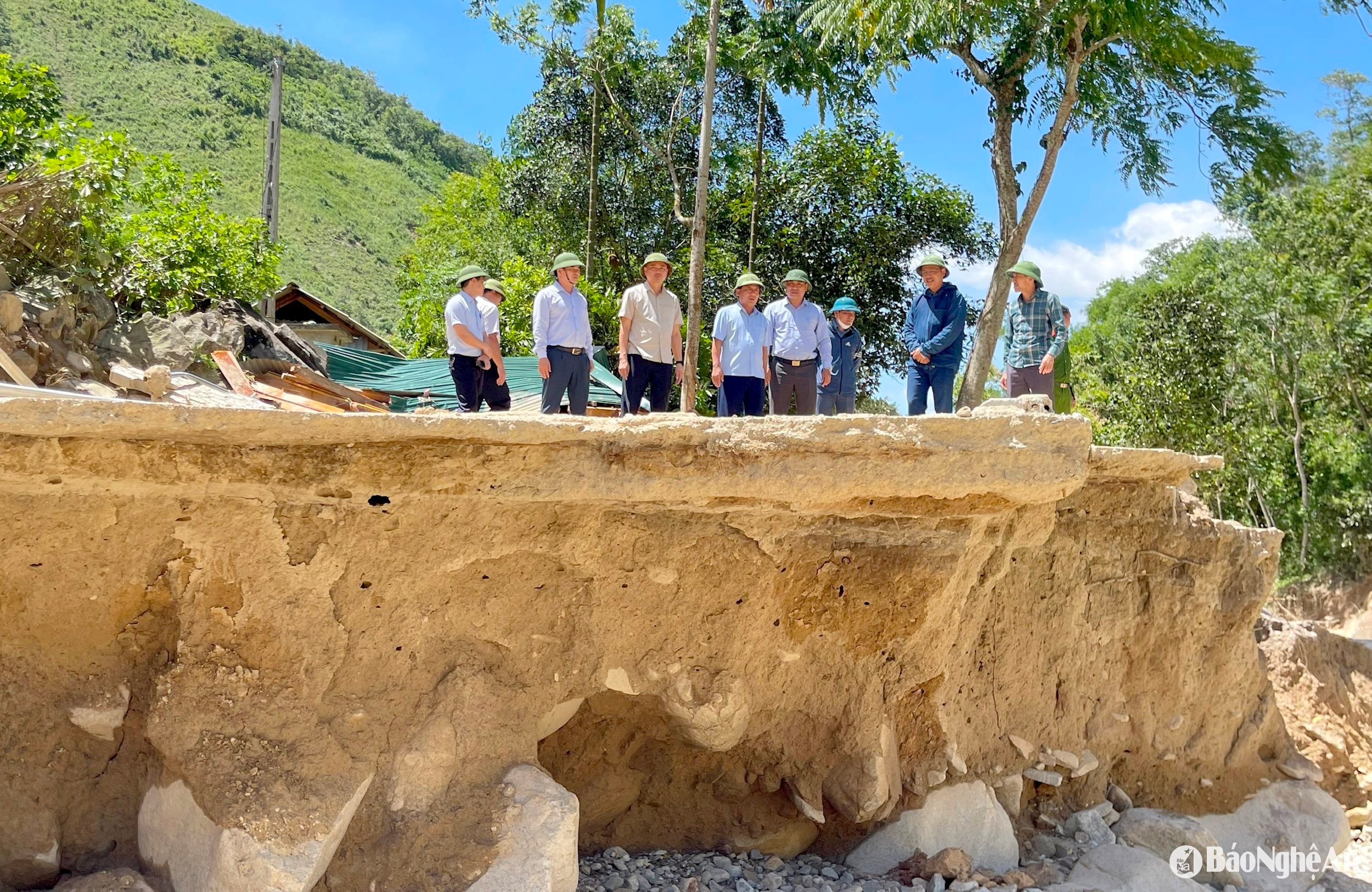
At Huu Khuong Ethnic Boarding Secondary School, one of the most severely damaged areas, despite the urgent intervention of militia forces, police, border guards and local people, classrooms, dormitories and schoolyards were still covered in mud. Many desks, chairs, beds, wardrobes and student belongings were severely damaged. Fortunately, the flood coincided with the summer vacation so students had not returned to school, avoiding human losses, and overcoming the consequences did not interrupt the teaching and learning of teachers and students.
Not only schools, but also houses have been left empty-handed after the floods. On Cha La stream, the family of Mr. Vi Van Binh in Con Phen village is still in shock: “The flood rose so quickly, the family only had time to run to higher ground and then stayed at a relative’s house for 2 days, now that the sun has risen, they dare to return. The newly built house has a large landslide, running from the foundation to the yard, just over 1 meter apart. The family does not dare to stay for fear of further landslides.”
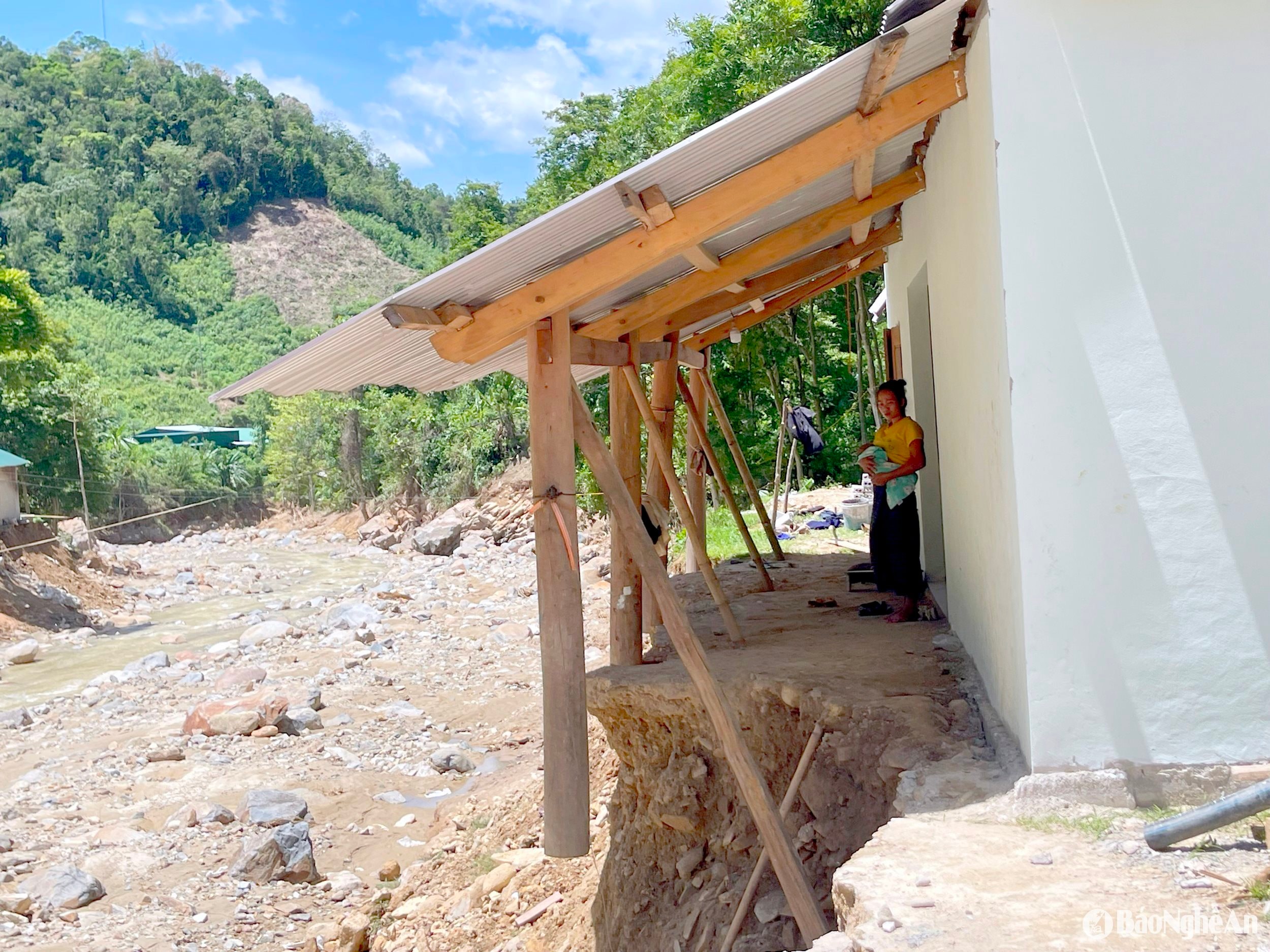
In Con Phen village, many iron bridges, which were the main traffic arteries connecting the villages, were swept away by floodwaters. People now have to risk their lives wading through fast-flowing streams to move around, which is extremely dangerous.
Mr. Lo Van Giap - Chairman of the People's Committee of Huu Khuong Commune said: Never before has a flash flood come so early and caused so much damage. The whole commune had 3 houses completely swept away, 23 others were flooded with soil and rocks; the school system and student dormitories were severely damaged. The damage in production was also very large, with dozens of hectares of rice, crops, and cassava destroyed; many fish cages, ponds, buffaloes, cows, and poultry were swept away. The total estimated damage in Huu Khuong Commune is up to billions of VND, which is very heavy for a locality with many difficulties like today...
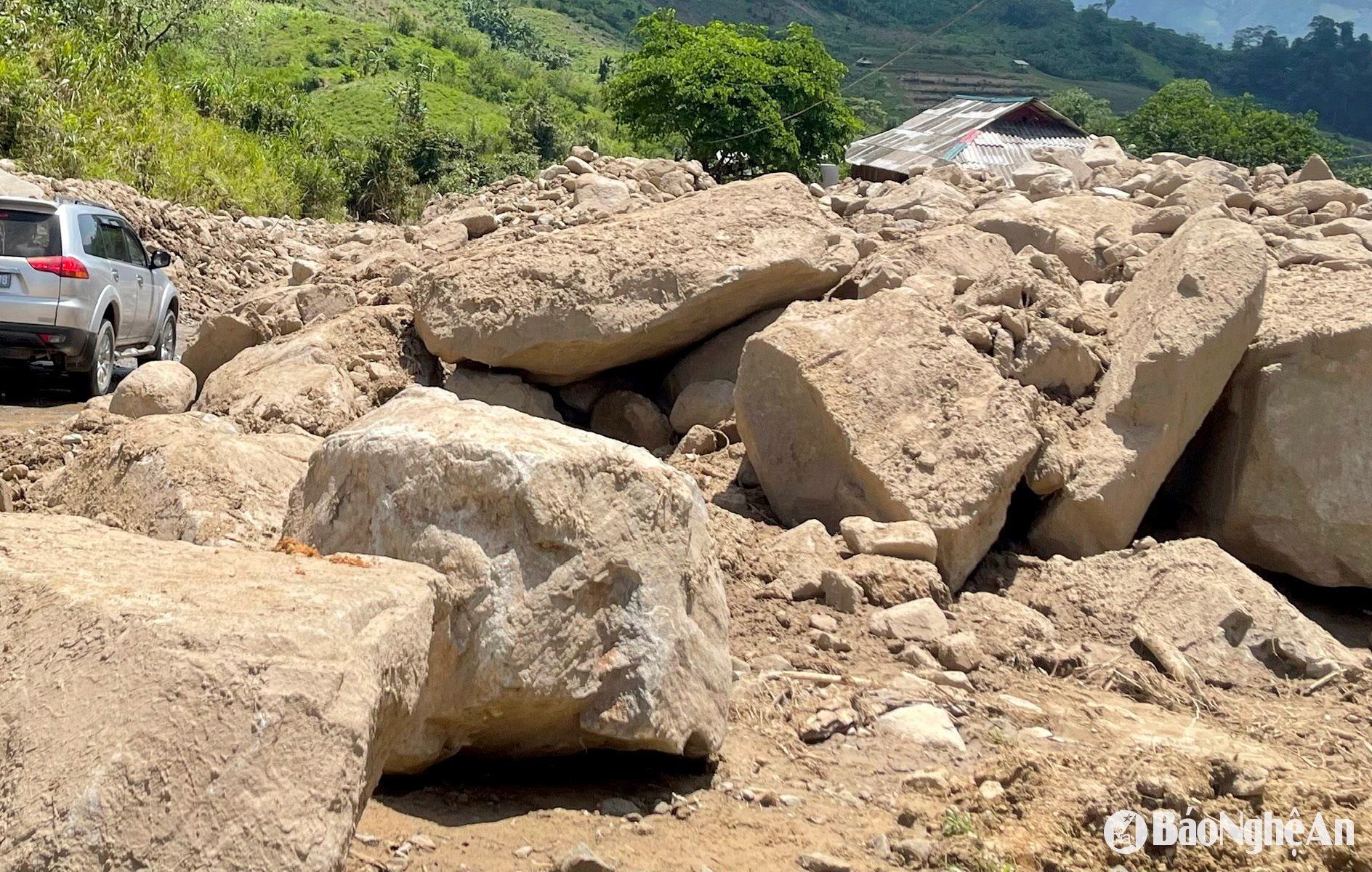
Tri Le commune (Que Phong) is still in chaos these days, people's lives have not returned to normal. It is worth mentioning that this is the first time the locality has witnessed flash floods in May, in the middle of summer.
Mr. Lu Van Cuong - Chairman of Tri Le Commune People's Committee said: "I have been a commune official for many years but have never seen flash floods occur in May in the locality. Normally, floods only appear from September to November, during the rainy and stormy season. In particular, Lam Hop village is considered one of the safest villages in the commune, not located in a mountainous area with many steep slopes like other villages, but this time it was heavily affected. This is very rare and worrying."
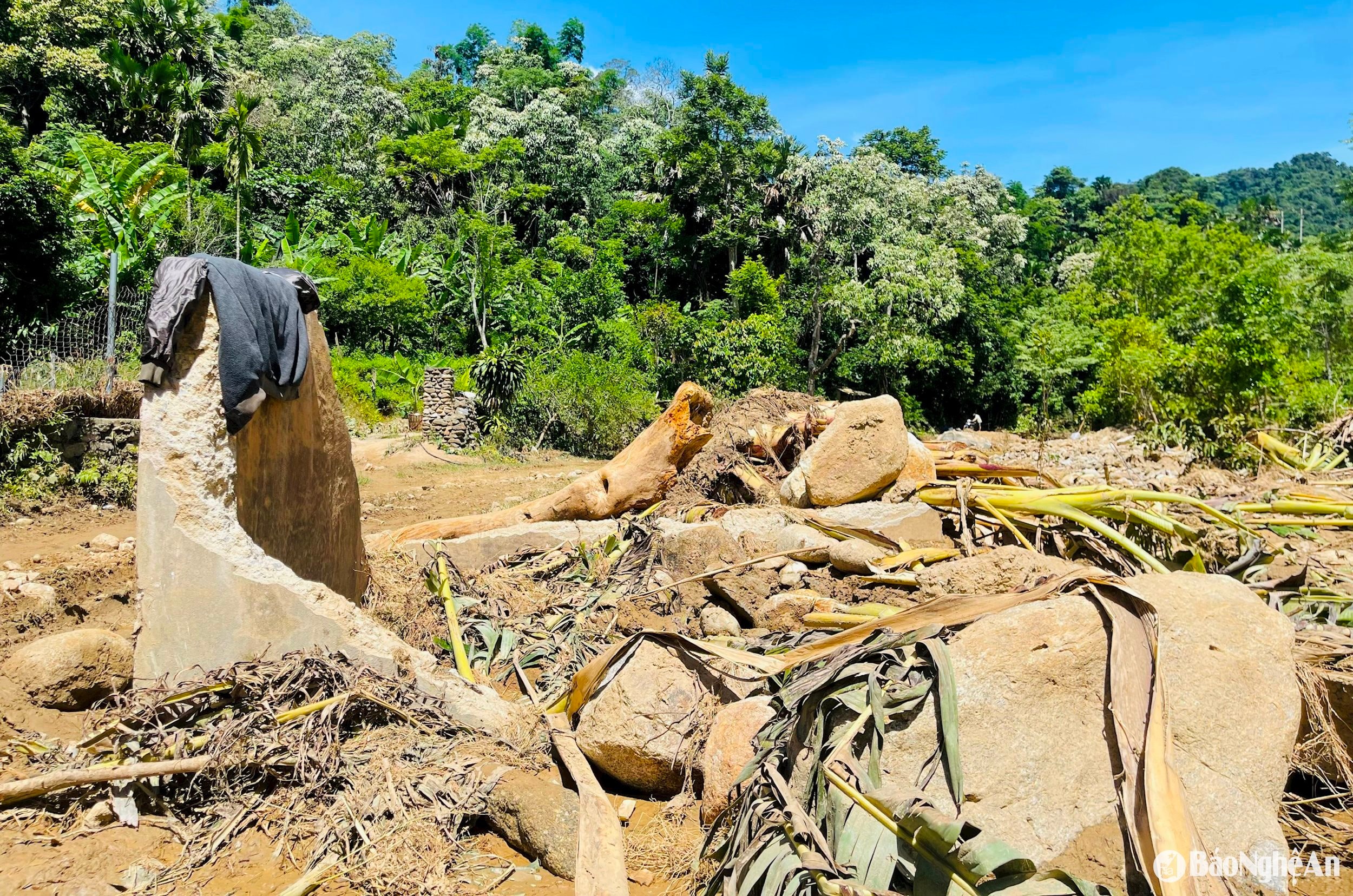
Many village elders and village chiefs in remote communes also confirmed that for decades, they have never seen floods in the middle of the hot summer. This is a sign of the increasingly extreme nature of the weather, requiring more flexible responses from both the government system and the people.
Research for resettlement
After the sudden flash flood, Vice Chairman of the Provincial People's Committee Nguyen Van De made a field inspection at the heavily affected areas in Tuong Duong and Que Phong districts.
At the scene, the Vice Chairman of the Provincial People's Committee encouraged people to quickly stabilize their spirits and overcome the consequences, while emphasizing: "The sudden early rain and flood is an alarm bell, we cannot be subjective in the face of increasingly extreme climate change. We must immediately activate response plans, especially the "4 on-site" motto to minimize possible damage in the coming time."
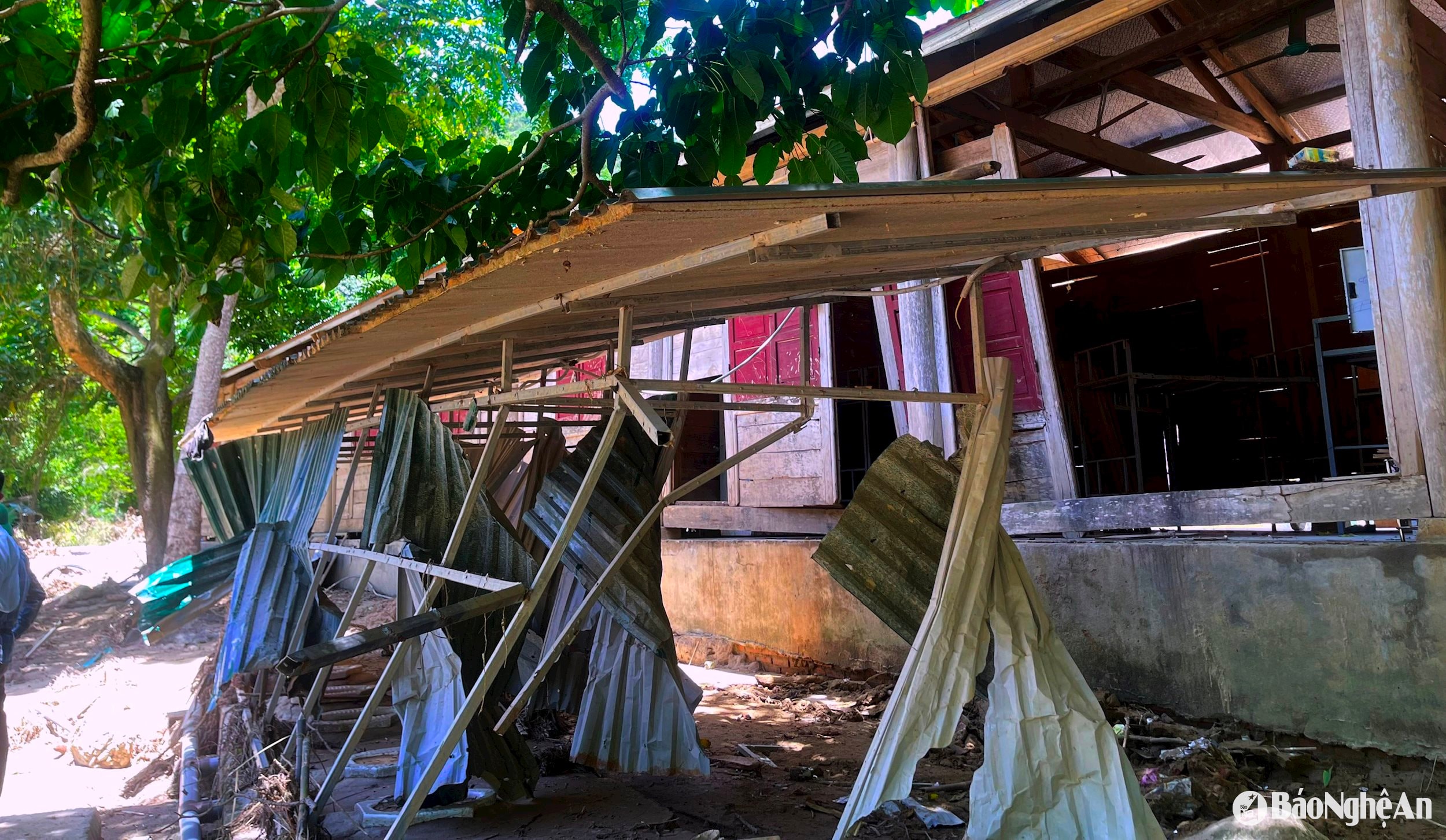
The Vice Chairman of the Provincial People's Committee requested departments, branches and localities to study plans to divert the flow of water in weak streams and creeks to other places, away from residential areas, to minimize flooding in the coming time. At the same time, in the long term, survey suitable locations to implement resettlement plans and relocate households living in high-risk areas.
Also during the inspection trip, the Vice Chairman of the Provincial People's Committee requested the districts to mobilize all machinery, human resources, and vehicles to urgently level soil and rocks, and temporarily clear routes to ensure traffic, supply goods, food, and clean water to households, giving priority to households that lost their homes and suffered significant property damage.
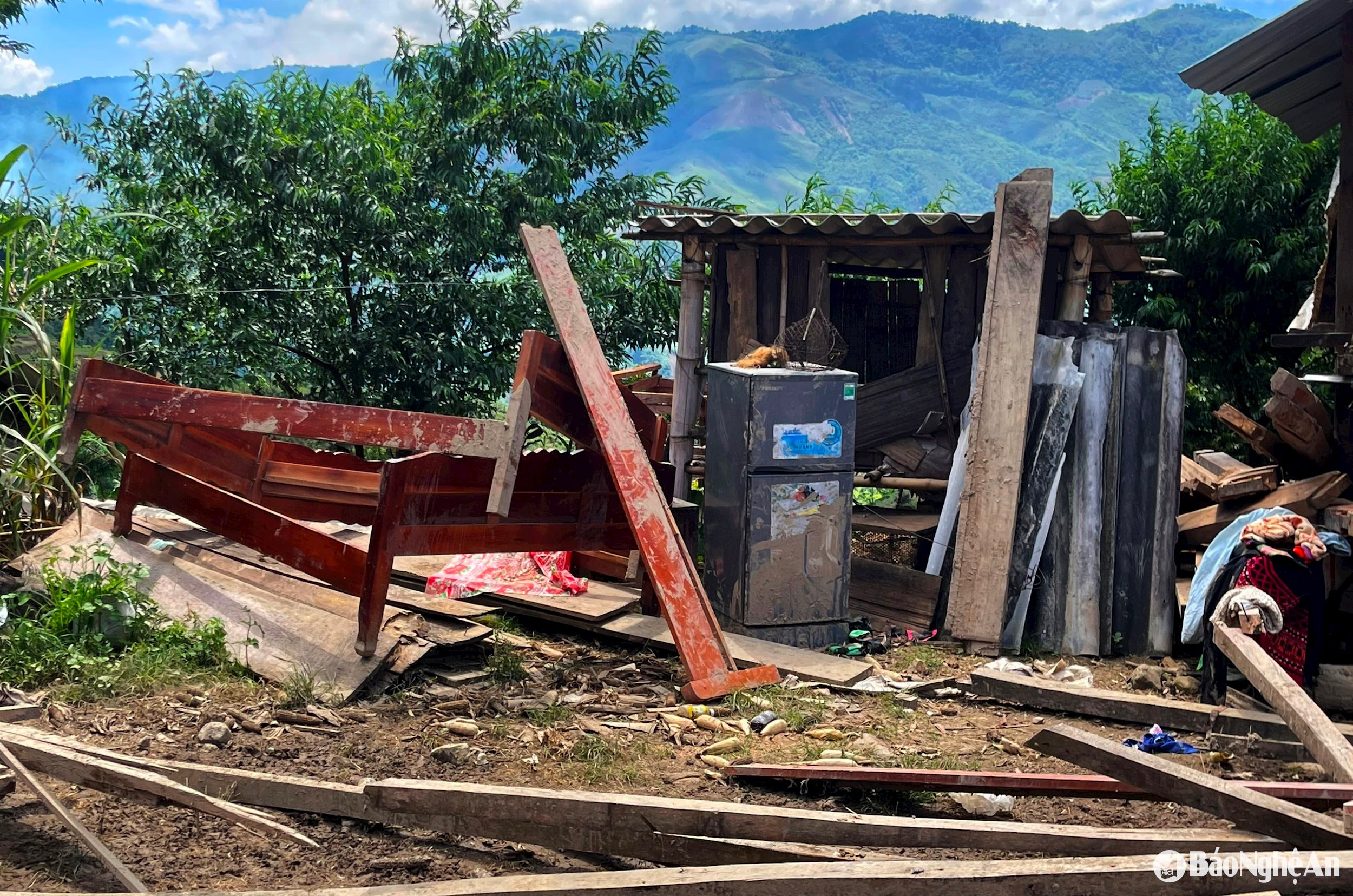
Border guards, police, militia, and youth volunteers were also mobilized to clean up houses and schools, and help people overcome initial damage. Medical staff were sent to remote villages to prevent and control post-flood epidemics, especially diarrhea, pink eye, and viral fever.
In addition, the provincial government also directed the Departmentof Education and Training to coordinate with local education and training departments to assess the extent of damage at school facilities and have emergency repair plans to prepare for the new school year, especially for boarding schools where students live together.
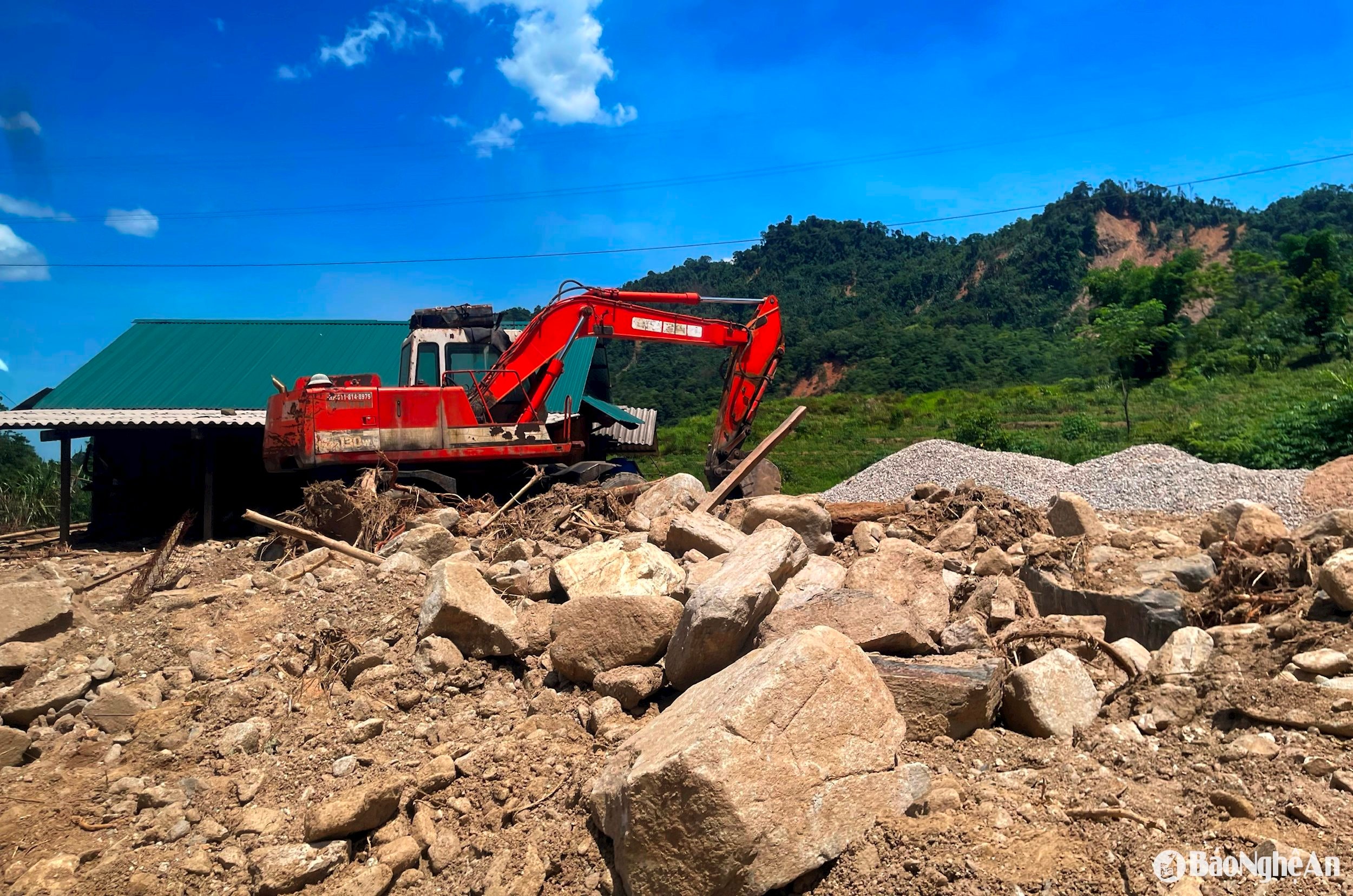
In the long term, the provincial leaders assigned the Department of Agriculture and Environment to coordinate with localities to survey and make a list of residential areas at risk of landslides and flash floods to develop a relocation and resettlement roadmap. Priority will be given to villages located along streams, deep ravines, and areas with weak geology. The construction of new residential areas will be linked to a synchronous infrastructure system such as electricity, water, schools, and medical stations to ensure long-term stability of life.
Despite having experience in natural disaster prevention and control, the unusual flash flood at the end of May is a clear warning that nature is increasingly unpredictable and does not follow traditional cycles. This poses a major challenge for natural disaster risk management, especially in mountainous districts with steep terrain, weak geology and limited infrastructure.
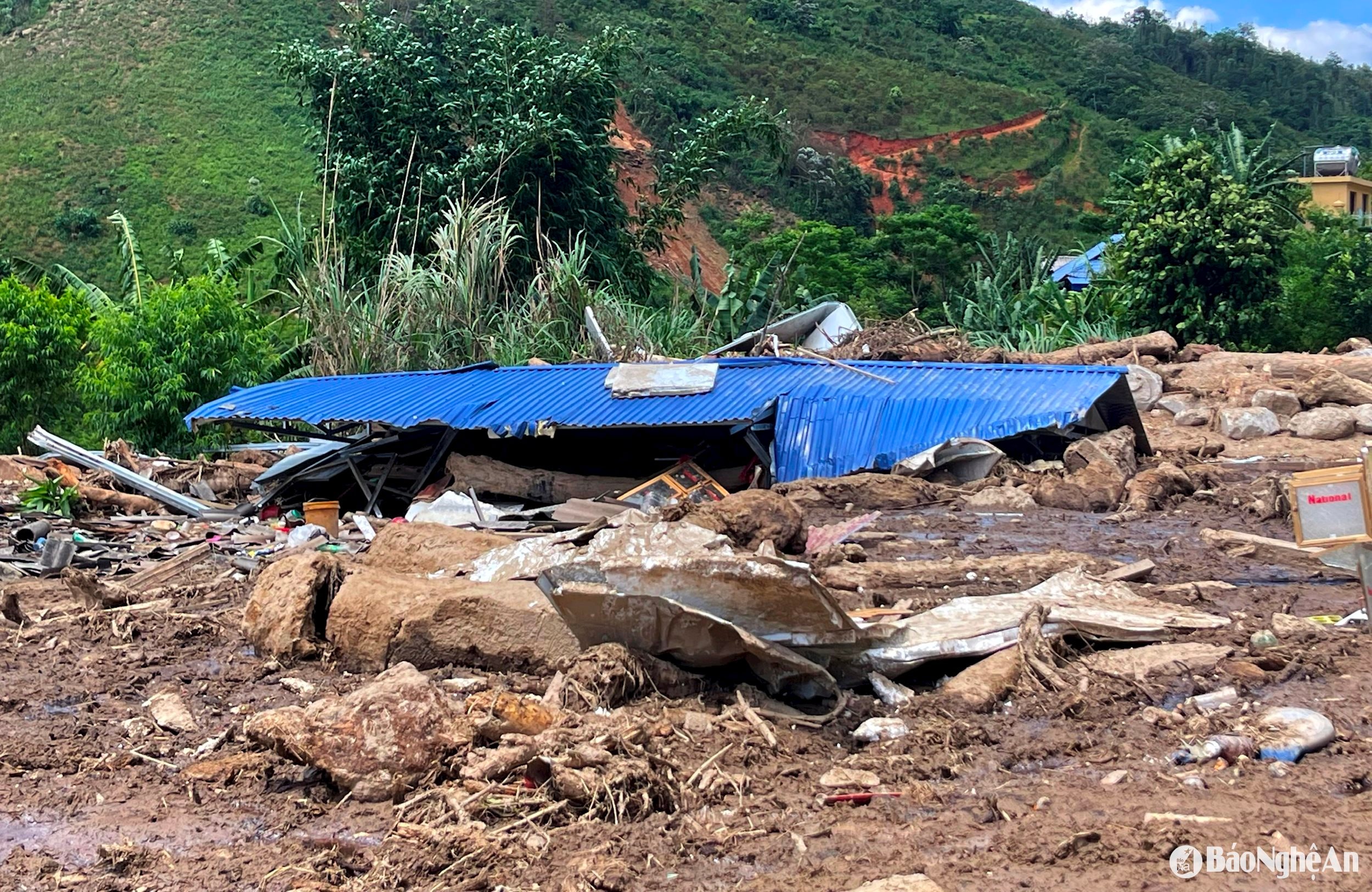
In such a context, it is impossible to continue to respond passively, with temporary solutions or temporary fixes. Localities and functional sectors need to promptly develop a long-term strategy for natural disaster prevention and control, prioritizing planning and resettlement of residents in accordance with terrain and hydrological characteristics, investing in solid infrastructure in safe resettlement areas, proactively adjusting water flows at high-risk locations, and at the same time, consolidating the "4 on-site" plans closer to reality. This is a prerequisite for minimizing damage and protecting people's lives and property in the long term./.
Source: https://baonghean.vn/nghe-an-tim-phuong-an-tai-dinh-cu-vung-lu-quet-10299184.html








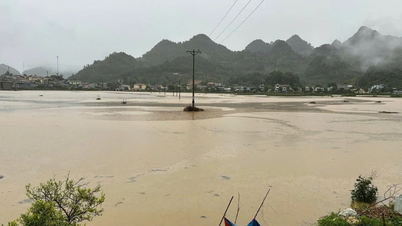













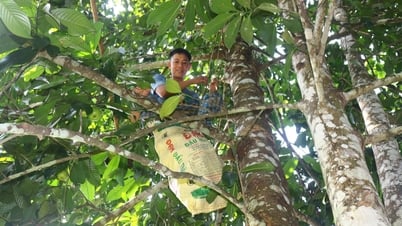
































































![[OCOP REVIEW] Tu Duyen Syrup - The essence of herbs from the mountains and forests of Nhu Thanh](https://vphoto.vietnam.vn/thumb/402x226/vietnam/resource/IMAGE/2025/6/5/58ca32fce4ec44039e444fbfae7e75ec)







Comment (0)